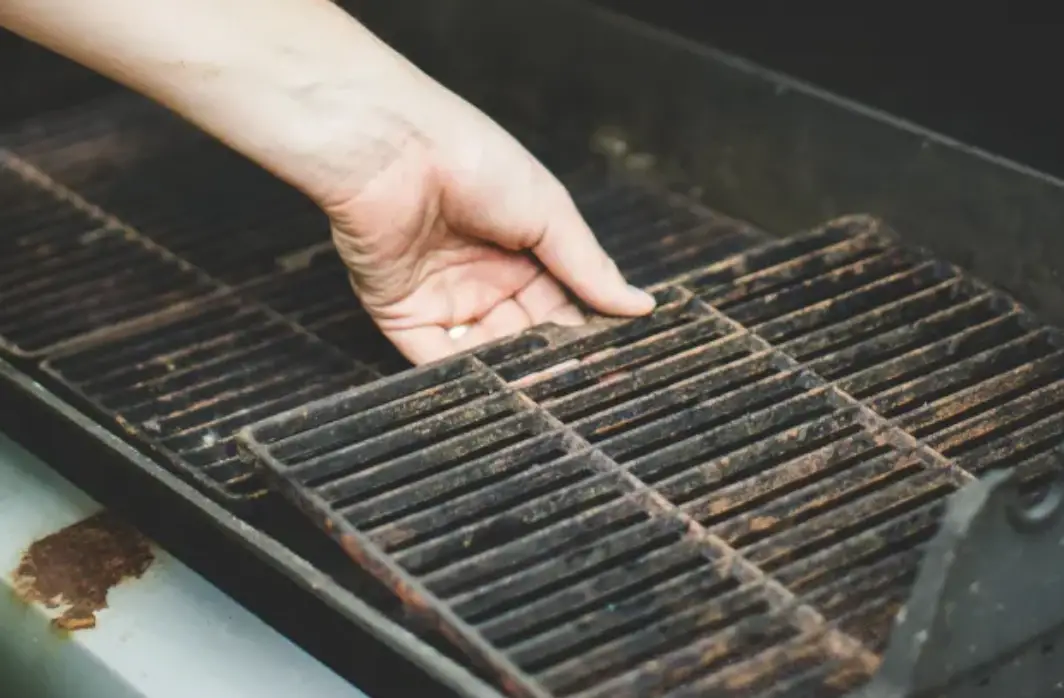A grill is more than just a cooking appliance; it’s a portal to mouthwatering flavors and cherished memories shared with friends and family. To keep your grill in top-notch condition and ensure that it continues to serve up delectable dishes, regular cleaning and maintenance are essential. But how often should you clean your grill? In this blog post, we’ll delve into the ins and outs of grill maintenance and provide helpful tips on how often to clean your grill to keep it in prime grilling shape.
1. After Every Use: The Golden Rule
The golden rule of grill maintenance is to give your grill a basic cleaning after each use. While it may be tempting to let the remnants of your culinary masterpiece linger until the next grilling session, a quick post-grill cleanup is well worth the effort.
Here’s what you should do after every use:
- Scrape the Grates: Use a grill brush or scraper to remove any leftover food particles and grease from the grill grates. This prevents the buildup of charred residue, making it easier to clean later.
- Empty the Drip Pan: If your grill has a drip pan or tray to catch grease and drippings, empty and clean it after each use. A clean drip pan prevents flare-ups and reduces the risk of grease fires.
- Wipe Down the Exterior: Give the exterior of your grill a wipe-down to remove any grime, dust, or food splatters.
2. Monthly Maintenance: Deep Clean
In addition to regular after-use cleaning, your grill requires a more thorough deep cleaning on a monthly basis. This deep clean tackles hard-to-reach areas and ensures that your grill operates optimally and maintains its longevity.
Monthly maintenance tasks include:
- Remove and Clean Grates and Heat Plates: Take off the grill grates and heat plates (or flavorizer bars) and scrub them with warm, soapy water. Rinse thoroughly and allow them to dry before reassembling.
- Clean the Burners: Check the burners for clogs or blockages. If necessary, use a grill brush or pipe cleaner to gently clean the burner ports.
- Check Ignition System: Test the ignition system to ensure that it sparks correctly and ignites the burners without any issues.
- Inspect Gas Lines and Connections: Check for any gas leaks or loose connections and address any problems promptly.
3. Seasonal Cleaning: Deep Dive
As the seasons change, it’s essential to give your grill a more extensive deep dive cleaning to prepare it for the upcoming months of grilling. Seasonal cleaning ensures that your grill is in peak condition and ready to deliver exceptional results.
Seasonal cleaning tasks include:
- Disassemble and Clean Interior: If possible, disassemble removable parts of the grill, such as the burner tubes and ignition system, to clean them thoroughly. Follow the manufacturer’s guidelines for proper disassembly and cleaning.
- Clean the Exterior: Use a grill-safe cleaning solution to scrub and remove any built-up grime, stains, or discoloration on the exterior of the grill.
- Inspect and Replace Parts: Check for any worn-out or damaged parts, such as grates, heat plates, and ignition components. Replace them if needed to ensure safe and efficient grilling.
Conclusion
Regular cleaning and maintenance are essential for keeping your grill in excellent condition and ensuring that it continues to deliver exceptional grilling results. After each use, a quick scrape and wipe-down keep your grill ready for the next cooking adventure. Monthly maintenance tackles deeper cleaning tasks, and seasonal cleaning ensures your grill is in top-notch shape for the months ahead.
By incorporating these cleaning routines into your grill care regimen, you’ll prolong the life of your grill and create a sanitary and enjoyable grilling environment for every cooking session. Remember, a clean grill is a happy grill, and a happy grill means delicious food and unforgettable moments with loved ones. Happy grilling!
